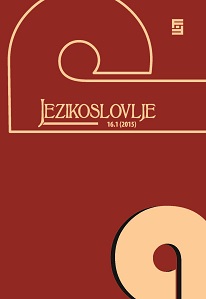Strategije učenja vokabulara u hrvatskome kao inome jeziku
Vocabulary learning strategies in Croatian
Author(s): Mihaela Tabak, Antonia OrduljSubject(s): Language and Literature Studies
Published by: Filozofski fakultet, Sveučilište Josipa Jurja Strossmayera, Osijek
Keywords: Croatian as a second/foreign language; vocabulary learning strategies; verbal protocols; cross-linguistic influence (CLI); cognitive learning theory
Summary/Abstract: Various general and specific factors may influence second/foreign language acquisition process (mother tongue, inborn universal grammar, cognitive development). Language learning strategies, as well as motivation and language aptitude, are among the crucial specific factors, and have been subject of numerous studies, resulting in different points of view. Appropriate usage of vocabulary learning strategies enhances the linguistic competence of the user. Since one of the most important goals of language teaching is increasing the lexical competence of the user, this study aims to investigate the use of vocabulary learning strategies among the Croatian language course participants at Croaticum. We would like to establish which vocabulary learning strategies are used, and if the beginners and the advanced users differ in strategy use. The instruments included Vocabulary Learning Strategies Questionnaire (Pavičić, 2003), demographic questionnaire, cloze-tests and interviews. The results indicate that the participants use three different types of vocabulary learning strategies: strategies of formal vocabulary learning and practicing, self-initiated independent vocabulary learning strategies and incidental vocabulary learning strategies. The role of the strategies in lexical competence development has not been researched in Croatian as a second/foreign language, so we believe that the results of this study will provide insights into this issue.
Journal: Jezikoslovlje
- Issue Year: XVI/2015
- Issue No: 1
- Page Range: 103-121
- Page Count: 19

